Organizing the Frankfurt Spring School is a lot of work: setting up the programme and booking trainers are only the most obvious tasks to take care of. Several people are involved, spending hundreds of hours, to get the Spring School running. For the past three years, a core team with representatives from the Frankfurt Zoological Society, the Goethe University and the KfW Foundation organized the Frankfurt Spring School beside their day-to-day jobs. Now, this has changed. Thanks to the Metzler Foundation, the Frankfurt Zoological Society was able to employ for the first time a coordinator for the Frankfurt Spring School 2020 – Stephanie Kalberer.
Since the beginning of her studies in biology in Switzerland, she has participated in many research and conservation projects worldwide – from Northern Germany to South Africa, Western Australia to Galápagos. Additionally, Stephanie has gained ten years of management experience: at a university, in a biotech company and as a student management consultant. This spring she attended the Frankfurt Spring School herself and was part of the social-media team contributing blog content during that time.

In this post, she answered a couple of questions for us (for the interview in German done by the Metzler Foundation click here):
You have already worked on Galápagos in a nature conservation project – why did you attend the Frankfurt Spring School?
My PhD thesis on “Life History Strategies and Population Dynamics in Galápagos Sea Lions” at the University of Bielefeld in collaboration with the Galápagos National Park and the Charles Darwin Foundation was linked to a research project on Galápagos. The goal was to facilitate future decisions in nature conservation management in Galápagos. My first field season in Galápagos was adventurous: our research material had been lost somewhere on the journey and arrived only three days later, and living with three assistants on an island the size of two soccer fields also brought some complications along. More experience in strategic planning, in dealing with employees as well as in communications and public relations would have made my start a lot smoother. Of course, I’ve learned a lot over the years – learning by doing – but on some topics it helps if you get tips and tricks from experts beforehand. Today, I know how important it is to be able to write good project applications, have strategic development and business plans, and handle finances and budgets appropriately.
What did you expect from this course and what was your highlight?
The four weeks were some of the best and most instructive in my entire academic career – it was inspiring, hands-on and I got insights that I wish I had received years ago. There were many highlights. The welcome speech by the FZS Director Dr. Christof Schenck was impressive. He showed very clearly that we have to act now, if we want to leave a livable planet for the next generation. The project planning training with Martin Davies and Nick Folkard was also remarkable. Being trained by people who have already raised millions in conservation funding around the world is very helpful. On top of theoretical knowledge we always had a direct link to real projects: six early career conservationists from across the globe participated in the Spring School as well. Besides attending the course, they developed a funding proposal for a conservation project in their home countries. Having had these international scholars of the KfW Foundation was very useful and something that I will continue to benefit from in the future. Workshops on social skills and leadership have given me new insights, which I was able to implement immediately after the Spring School in my research on Galápagos. Last but not least, during the four weeks, friendships and a network were created that I would not want to do without anymore. All this has made the Spring School to what it was – unique four weeks that I would like to experience again.
Why did you apply for the position of the Spring School Coordinator? On which aspects do you want to focus?
After this year’s Spring School, I was inspired, motivated, and grateful that I was able to spend such an instructive time with such great people. Now, I want to make sure that other future conservation project leaders can make the same great experience. I fully support the concept and want to continue and further improve the Spring School. As an alumnus I am also interested in building a Spring School alumni network that will grow each year. A strong professional network is essential for successful nature conservation – together we can always achieve more than alone.
Thus, I am really looking forward to the Frankfurt Spring School 2020 and to meet the new generation of nature conservationists. Don´t hesitate to drop an email at info@frankfurtspringschool.de if you have any questions – I am always happy to help!
Already for the fourth time, the Frankfurt Spring School on Conservation Project Management will take place at the Goethe University in Frankfurt am Main in spring 2020. Don´t miss your opportunity to participate in Germany’s unique crash course for conservationists from 24 February to 20 March 2020! In four intensive weeks, experienced international experts will train you in conservation project management, human resources and personnel management, financial management, performance skills and organisational development. Besides the interactive workshops at the Goethe University, the programme includes also an excursion to the Kellerwald-Edersee National Park for a first-hand experience of wilderness conservation and a “Speed-Dating” event where you can network with conservation veterans and your Spring School fellows.
Over the last three years, over 90 motivated early career conservationists from across the globe came together to improve their knowledge and skills to successfully manage the world’s conservation challenges. Do you have a passion for conservation, a strong work ethic and the drive to improve? Then, the Frankfurt Spring School is just the place for you.
Click here to learn how to apply! Application deadline is 1 November 2019.
For six international KfW Foundation Spring School scholars from Brazil, DR Congo, Guyana, Indonesia, Tanzania and Zambia the end of Spring School was only the beginning. Already during the four weeks on conservation project management training those six were busy designing and structuring their own “dream project” on paper. Day by day the conservationists developed, reviewed and refined their project proposals until they were ready to be submitted to the KfW Foundation.
Two weeks after the Spring School, finally, the scholars presented their dream conservation project to the KfW Foundation Selection Panel. Representatives of the KfW Foundation, Goethe University, WWF, FZS as well as an external consultant put the project proposals to the acid test and drilled the scholars with questions.
All six of them did a great job and their passionate as well as professional presentations did not make the panel’s decision any easier.
Eventually, however, after hours of discussion, a decision was made. We are happy to announce that the following three proposals were selected to receive funding from the KfW Foundation and will be implemented by the Spring School scholars:
 Livelihood improvements in the wildlife corridor villages, Tanganyika District, Tanzania by Regina Domonko
Livelihood improvements in the wildlife corridor villages, Tanganyika District, Tanzania by Regina Domonko
 Improvement of monitoring and evaluation standards of reintroduced sumatran orangutan in the Bukit Tigapuluh Landscape, Indonesia by Andhani Hartanti
Improvement of monitoring and evaluation standards of reintroduced sumatran orangutan in the Bukit Tigapuluh Landscape, Indonesia by Andhani Hartanti
 Sustainable use of socio-biodiversity in the Brazilian Savanna, Cerrado, Brazil by Carolina Siqueira
Sustainable use of socio-biodiversity in the Brazilian Savanna, Cerrado, Brazil by Carolina Siqueira
Congratulations to Regina, Andhani and Carolina and best of luck for the implementation of your projects!
We’re sure that the suitcases of all scholars and also all the other Spring School participants are full of newly acquired know-how and skills for the management of nature conservation projects.
We wish all participants the very best for their future!
P.S.: The photo in the top images shows the six KfW Foundation scholars together with the members of this year’s Selection Committee (from left to right: Bernd Siegfried, Regina Domonko, Hervé Kimoni, Issah Mulilo, Andhani Hartanti, Dr. Tobias Garstecki, Dr. Christof Schenck, Christine Mentzel, Joachim Gottschalk, Pia Puljanic, Dr. Thomas Müller, Timothy Babb and Carolina Siqueira). © KfW Foundation/Ruben Armbruster
Today, this year’s KfW Foundation scholars pitch their project proposals. Good luck to all of them. A lot of hard work went into the project proposals before, during and after the four weeks of Spring School. While we await the decision on this year’s winners, you can test yourself: Which of the projects matches your conservation interests the most?
Our quiz has five questions. Make sure to note down the number of the answer you selected for each question. That will be essential for the outcome of the game!
A. Which challenge in nature conservation interests you the most?
1. Conversion of natural habitat for agriculture.
2. Deforestation as a result of illegal mining.
3. Endangered species suffering from habitat loss.
4. Endangered species threatened by poaching.
5. Human rights violations.
6. Deforestation due to population growth.
B. Which component in nature conservation is important to you?
1. Promoting sustainable agriculture and forest management in local communities.
2. Monitoring forest cover to detect illegal deforestation.
3. Re-introduction of endangered species.
4. Monitoring wildlife.
5. Assuring human rights and law enforcement.
6. Assuring sustainable livelihoods of local communities and connectivity between habitats.
C. What’s your favourite species?
1. Maned wolf – is it a fox? Is it a wolf? Neither!
2. Jaguar – gotta love big cats.
3. Orangutan of course!
4. Can’t really decide between black rhinos or elephants – both are awesome.
5. Bonobo and elephants.
6. Chimpanzees – our closest relatives!
D. Which tools and methods would you like to apply while working in a conservation project?
1. Smart strategies to promote sustainable local products and collaborations between communities.
2. Unmanned Aerial Vehicles (“drones”) and maps.
3. Telemetry and behavioural observations.
4. Camera traps and habitat assessments.
5. New communication mechanisms with the local community.
6. Beekeeping, microfinance and wildlife corridors.
E. In which country would you like to work in the field of nature conservation?
1. Brazil.
2. Guyana.
3. Indonesia.
4. Zambia.
5. Congo.
6. Tanzania.
Did you remember to write down the number of each answer? Have a look to see which number you selected the most. This indicates which project from this year’s KfW Foundation scholars suits you best:
Project 1: Sustainable use of socio-biodiversity in the Brazilian Savanna, Cerrado, Brazil by Carolina Siqueira
Project 2: Using Fixed-Wing Unmanned Aerial Vehicles (drones) to enhance the monitoring activities across Guyana’s National Protected Areas System, Guyana by Timothy Babb
Project 3: Improvement of monitoring and evaluation standards of reintroduced sumatran orangutan in the Bukit Tigapuluh Landscape, Indonesia by Andhani Hartanti
Project 4: Assessing the impacts of the increasing elephant population on the rhino sanctuary in North Luangwa National Park, Zambia by Issah Mulilo
Project 5: Support for the implementation of the complaints management mechanism against abuses by eco-guards of the Salonga National Park, DR Congo by Hervé Kimoni
Project 6: Livelihood improvements in the wildlife corridor villages, Tanganyika District, Tanzania by Regina Domonko
Authors: Dafna Gilad and Vera Pfannerstill.
P.S.: The frog in the top image is a glass frog (Hyalinobatrachium crurifasciatum), photographed near the Jordan Falls in Kanuku Mountains Protected Area, Guyana by Daniel Rosengren.
Time flies – it seems like we only met yesterday, but the four weeks are over and Friday was already the last day of the Frankfurt Spring School. What a journey it has been! Although it was intense and packed with learning new things about conservation project management, we had a lot of fun together and great memories and friendships were built. We asked some of our Spring School fellows how they perceived the Frankfurt Spring School 2019, what their highlights were and if their expectations were met:
“I am very pleased to have learned a lot about the design of a conservation project and to have strengthened my capacity on communication methods and conflict management. My expectations have been fully met.”
Hervé Kimoni, responsible for legal and administrative litigation from DRC
“For me personally the most interesting part of the Spring School was training provided by Martin Davies and Nick Folkard. It was absolutely amazing to be taught by experienced fundraisers who earned dozens of millions for nature conservation projects around the world. Spring School met my expectations 100% and I appreciate this great opportunity to be trained by highly-qualified professionals with wagon of knowledge in project management.”
Fariza Adilbekova, conservation specialist from Kazakhstan
“For me, the highlight of the spring school has definitely been the friends I have made. We have been so fortunate to have such an incredible group of people that have become like a little family. My expectations were met and exceeded – I have enjoyed it way more than I thought I would.”
Lorna Scott, M. Sc. student in International Nature Conservation
“The highlight was the excursion to Kellerwald Edersee National Park! It’s such a privilege to be part of the Spring School, but also that an excursion with bus etc. is organized for us to see such a special place! I think most people enjoyed being outside a lot after weeks of studying inside and the information provided by the staff was great. My expectations were totally met! I think it is special to have facilitators from all kinds of areas teaching us in a huge variety of topics relevant for successful conservation work. I particularly liked the input from people who worked in conservation projects on the ground. That was really hands-on.”
Katharina Kühnert, young conservationist from Germany.
We were inspired by Frankfurt Spring School and all its components. We acquired new skills, we shared experiences, we built a network and made new friends. We are motivated and very well prepared to start or continue our conservation projects.
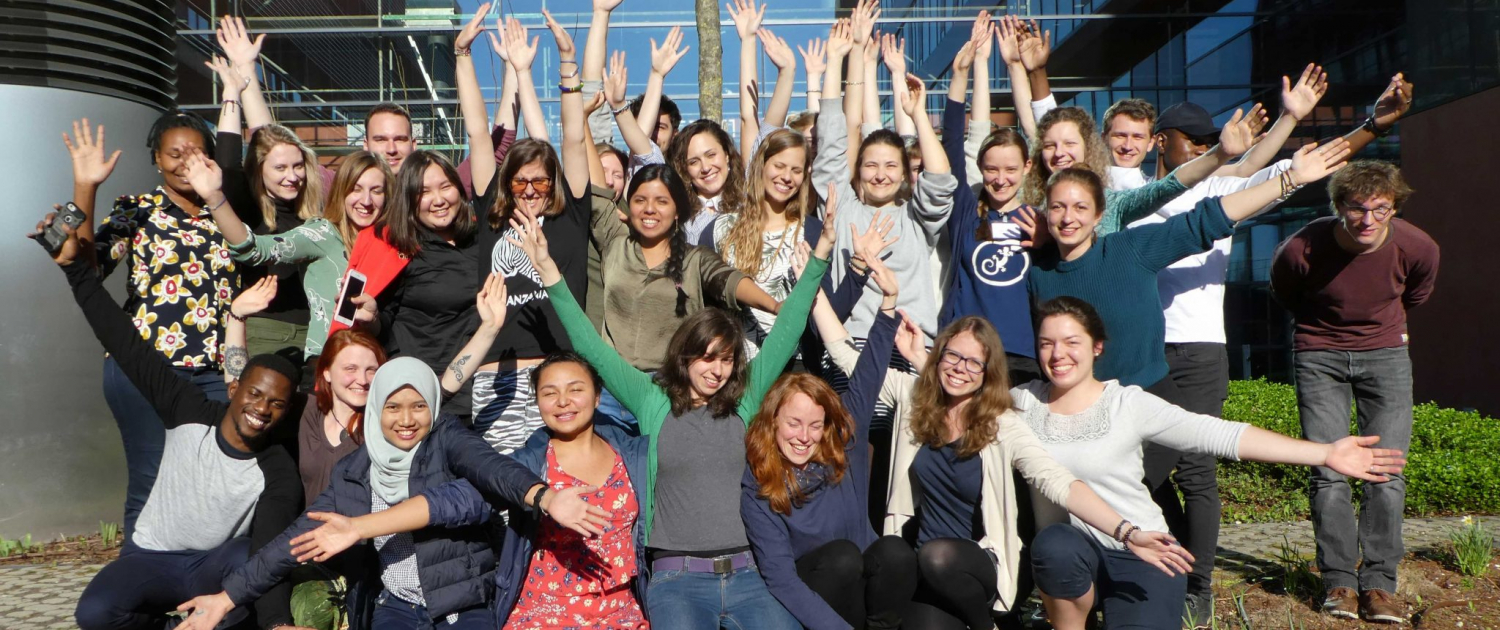
And with this, we wish all of you good luck with your career plans and look forward to meeting you all again!
Authors: Regina Domonko, Stephanie Kalberer, Vera Pfannerstill
Six Spring School participants from Latin America, Africa and Asia received a scholarship from the KfW Foundation. During the four weeks of Spring School they not only attended the lectures but also worked on their own project proposals. When Spring School is over they will present these proposals to a jury. Three of the six project ideas have the chance to receive financial support from the KfW Foundation and will become proper conservation projects in the future.
Find out how each of our scholars is planning to contribute to conservation in their home country:
Sustainable use of socio-biodiversity in the Brazilian Savanna, Cerrado, Brazil
Carolina Siqueira
The aim of the project is to stimulate and value the sustainable use of socio-biodiversity resources of the Cerrado. The Cerrado holds around 5 % of global biodiversity and its habitat is being destroyed and deforested really fast, to make room for agricultural production. At the same time, the Brazilian Savanna has a great potential for utilization of the native fruits and a great diversity of non-timber forest products. Empowering agroextractivism* is a strategy of the project because it is important for the conservation of the biome, and for the income generation of the communities that carry it out, contributing to the improvement of living conditions and, consequently, to the permanence of the Cerrado peoples in rural areas and in the protected landscape. Thus, this project aims to contribute to the WWF overall goal to keep the Cerrado standing, respecting the ecological dynamics, valuing and conserving preserving this biome.
* Agroextractivism, in general, means the non-destructive collection/harvest of non-timber plant-origin products (leaves, fruits, nuts, seeds, oils, among others) for various uses (food, medicine, cosmetics).
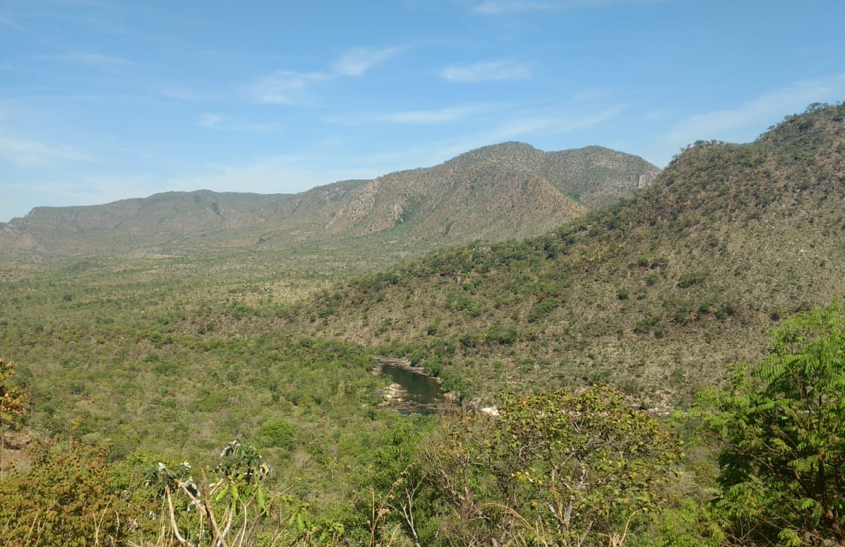
Using Fixed-Wing Unmanned Aerial Vehicles (drones) to enhance the monitoring activities across Guyana’s National Protected Areas System, Guyana
Timothy Babb
The project is about using fixed-wing unmanned aerial vehicles (UAV) to enhance the monitoring activities across Guyana’s National Protected Areas System. This project will be piloted in the Kaieteur National Park where illegal gold mining is the major threat. Another aspect of the project deals with building the capacity of the Protected Areas Commission, to integrate this UAV technology into Ecological Threat Monitoring programmes with the development of protocols and trainings. This project will help to provide better quality data to understand the extent of the problem of illegal gold mining in the protected area and thus make effective management decisions to eradicate the threats.
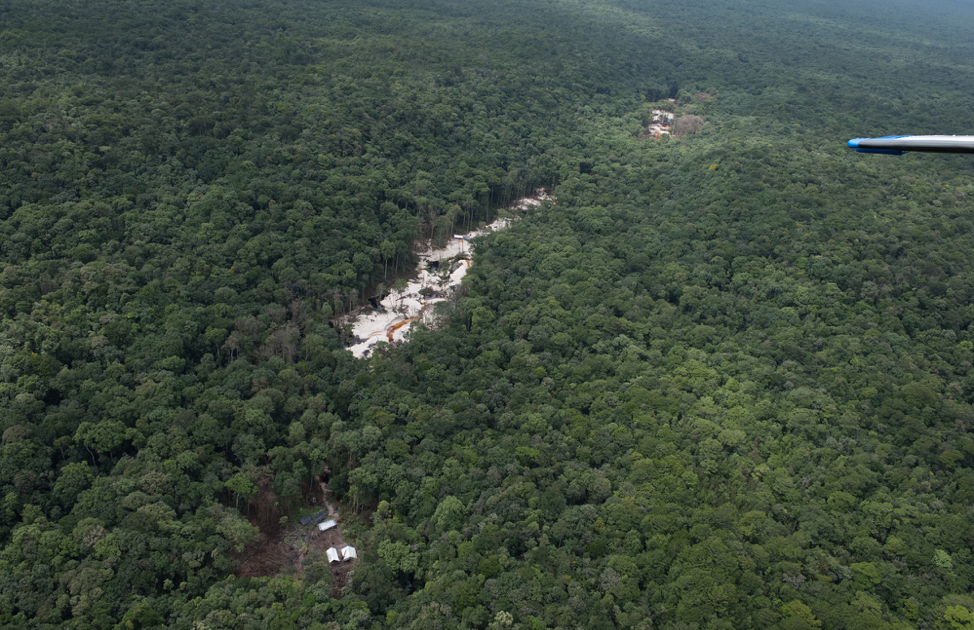
Improvement of monitoring and evaluation standards of reintroduced sumatran orangutan in the Bukit Tigapuluh Landscape, Indonesia
Andhani Hartanti
This project is about the improvement of monitoring and evaluation standards in Sumatran orangutan reintroductions. After more than a decade, there were 13 infants born in Bukit Tigapuluh National Park. However, several of them as well as their mothers couldn’t survive because the mothers lacked necessary maternity skills. This condition is very severe because the population will continue to grow and more babies will be born. The project aims to improve the survival chances of reintroduced mothers and infants. We will conduct monitoring on mother infant couples to be able to support them and gain knowledge about their behaviour.
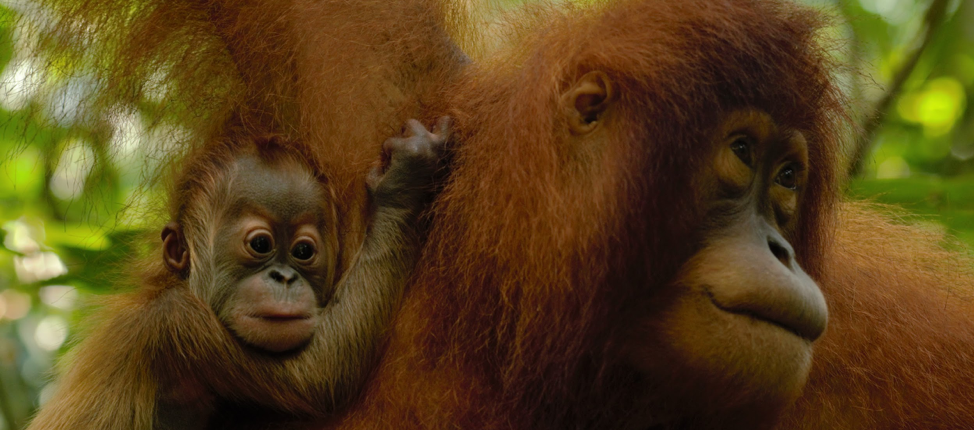
Assessing the impacts of the increasing elephant population on the rhino sanctuary in North Luangwa National Park, Zambia
Issah Mulilo
The project will identify the impact of the increasing elephant population on the rhino sanctuary in North Luangwa National Park so as to draw up a monitoring impact plan on the rhino conservation area, and provide information about the status of rhino browse and biodiversity within the rhino sanctuary to inform a management strategy for the sanctuary as well as overall Protected Area Management approaches for the national park, in particular for elephant and rhino management across the ecosystem.
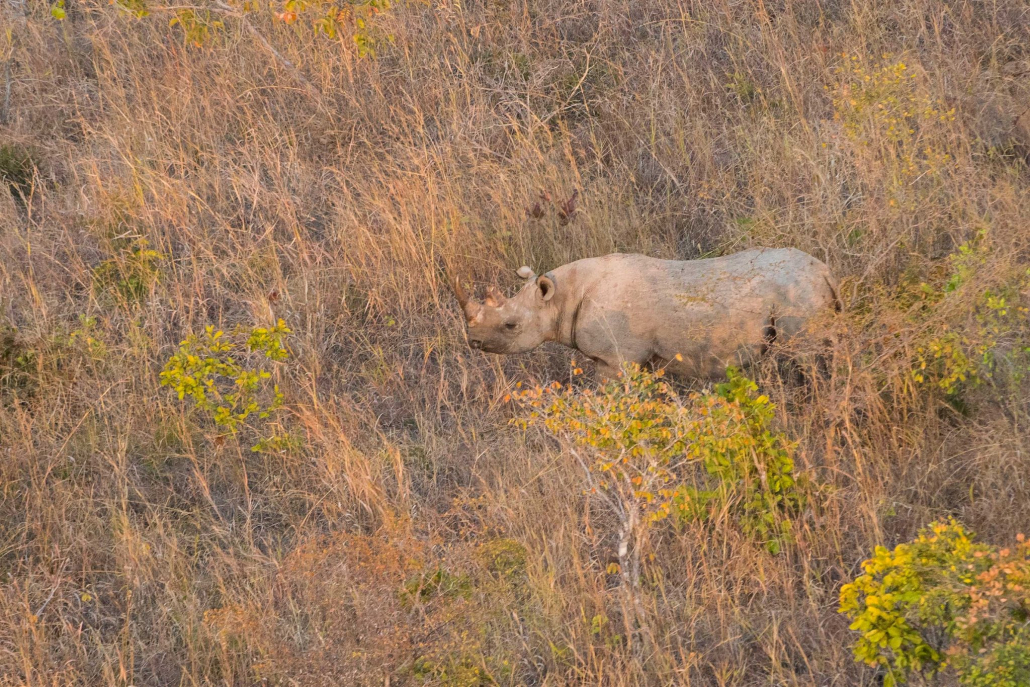
Support for the implementation of the complaints management mechanism against abuses by eco-guards of the Salonga National Park, DR Congo
Hervé Kimoni
The project idea is to accompany the first implementation of a complaint mechanism in Salonga National Park. The project’s purpose is to reduce human right abuses and other abuse of power by rangers. The ultimate goal is to satisfy all stakeholders and preserve the integrity of the park. The project aims to build capacities where needed, document successes and failures and propose improvements of the complaint mechanism.

Livelihood improvements in the wildlife corridor villages, Tanganyika District, Tanzania
Regina Domonko
The project aims at reducing deforestation in the wildlife corridor connecting Mahale and Katavi National Parks. This area is the habitat of a rare and endangered subspecies of chimpanzee (Pan troglodytes schweinfurthii), elephants, African wild dogs and other animals. However, there is severe deforestation ongoing due to unsustainable livelihoods with slash & burn agriculture practices, illegal logging and charcoal making as well as poor law enforcement in Natural Resources Management (NRM) in the wildlife corridor villages. The project will help to strengthen capacities of village institutions and to ensure law enforcement in NRM. It will improve people’s livelihood through the establishment of microfinance schemes with Community Conservation Banks where communities, especially women, will have access to loans and open businesses, and the establishment of modern beekeeping where communities will get income from selling honey. This will help to reduce deforestation in the wildlife corridor.
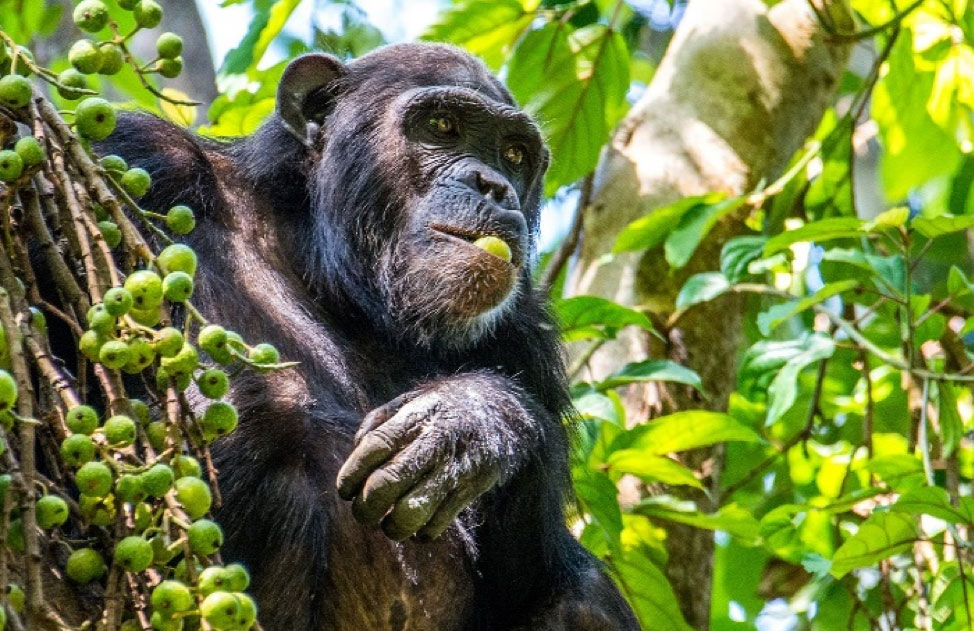
We wish all of our scholars best of luck with their proposals!
Authors: Dafna Gilad and Vera Pfannerstill.
How to create the most intense network situation imaginable? Take a team of conservation veterans, unleash 30 students on them and make sure to limit their time for small-talks. Vóilà, you’ll end up with an event we call “Conservation Speed Dating”. How does it work? Actually quite similar to the romantic approach.
Here is our recipe for Conservation Speed Dating
Take at least 10 groups of 2-3 students and one expert. Give them some space, but limit the privacy to 5 minutes. Then, mercilessly ring a bell – better a proper gong – and make sure the students move on to the next conservation expert on the next table.
While the first gong comes as a surprise, everybody will gear up immediately after. Just minutes into the game, all are up to speed and talking. Here is our proof-of-concept and the cast for this years’ date-floor.
For the students it was a unique opportunity to ask the experts about their conservation career, the most challenging aspects of their job and how is it like to work in remote places.
“
For me it was a really good experience to learn from their [experts] experiences, as I will soon finish my masters and start looking for a job.”
Saskia Dröge, University of Hildesheim Master student
“
I found it very interesting to gain insights about their own careers: their personal career path was inspiring.”
Katharina Kühnert, a young conservationist from Munich
“
It gave me insights of what characteristics you should have as a young conservationist – resilience, determination and to keep going. It was very encouraging to know that it was also hard for them when they started out their career.”
Georgina Kate Hoare, University of Edinburgh Master student
“
You don’t get this opportunity at university – to talk to staff and learn from their experiences. One advice I learned was to plan carefully how much you want to dedicate to conservation and where you want to see yourself in five years.”
Vera Pfannerstill, Göttingen University PhD student
Make sure not to wear out the concept. Allow about an hour for the speed dating cycles, then swap the gong and stop-watch for a nice buffet and leave everybody as much time as possible with their “perfect conservation match”.
Here is a short video recap of the event:
Authors: Dafna Gilad and Daniela Zaec
Video: Mathias Hundt
About Spring School
Frankfurt Spring School on Conservation Project Management is an annual four weeks course unique to Germany for gaining crucial knowledge and skills required for becoming a professional project manager.
It was developed within a partnership of seven organizations linked to practical conservation, science and research or general management.
Recent posts
- And the grant goes to … (3/3)14. April 2025 - 8:37
- And the grant goes to … (2/3)10. April 2025 - 17:15
- And the grant goes to … (1/3)8. April 2025 - 13:34
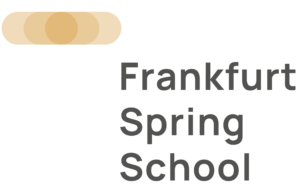
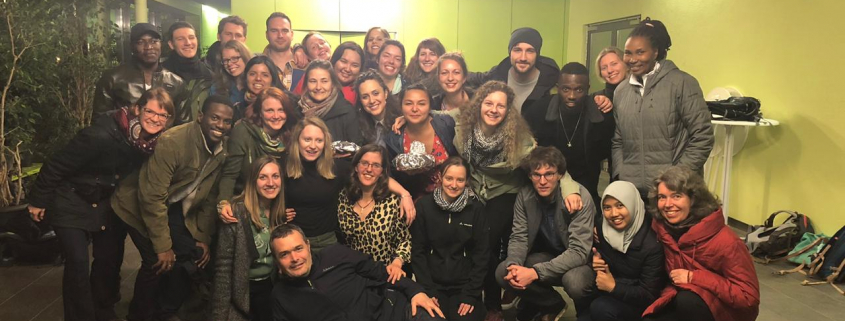
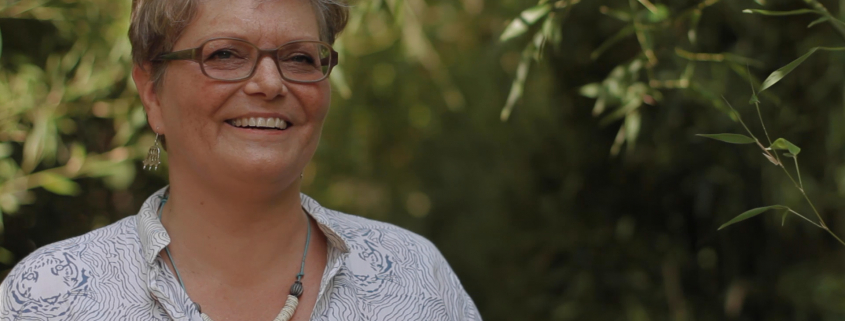

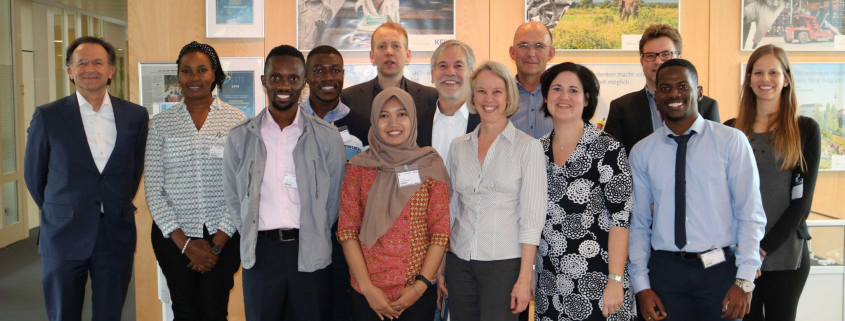 KfW Foundation/Ruben Armbruster
KfW Foundation/Ruben Armbruster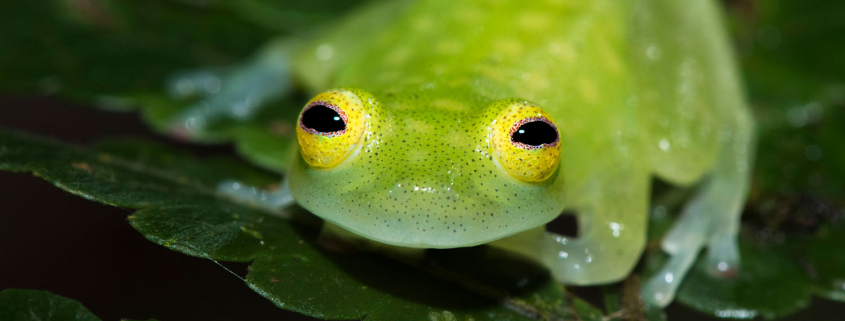
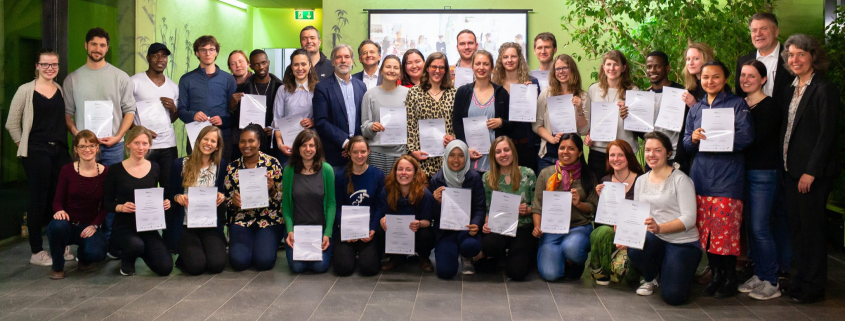 Jeldrik Schröer / FZS
Jeldrik Schröer / FZS “I am very pleased to have learned a lot about the design of a conservation project and to have strengthened my capacity on communication methods and conflict management. My expectations have been fully met.”
“I am very pleased to have learned a lot about the design of a conservation project and to have strengthened my capacity on communication methods and conflict management. My expectations have been fully met.” “For me personally the most interesting part of the Spring School was training provided by Martin Davies and Nick Folkard. It was absolutely amazing to be taught by experienced fundraisers who earned dozens of millions for nature conservation projects around the world. Spring School met my expectations 100% and I appreciate this great opportunity to be trained by highly-qualified professionals with wagon of knowledge in project management.”
“For me personally the most interesting part of the Spring School was training provided by Martin Davies and Nick Folkard. It was absolutely amazing to be taught by experienced fundraisers who earned dozens of millions for nature conservation projects around the world. Spring School met my expectations 100% and I appreciate this great opportunity to be trained by highly-qualified professionals with wagon of knowledge in project management.” “For me, the highlight of the spring school has definitely been the friends I have made. We have been so fortunate to have such an incredible group of people that have become like a little family. My expectations were met and exceeded – I have enjoyed it way more than I thought I would.”
“For me, the highlight of the spring school has definitely been the friends I have made. We have been so fortunate to have such an incredible group of people that have become like a little family. My expectations were met and exceeded – I have enjoyed it way more than I thought I would.” “The highlight was the excursion to Kellerwald Edersee National Park! It’s such a privilege to be part of the Spring School, but also that an excursion with bus etc. is organized for us to see such a special place! I think most people enjoyed being outside a lot after weeks of studying inside and the information provided by the staff was great. My expectations were totally met! I think it is special to have facilitators from all kinds of areas teaching us in a huge variety of topics relevant for successful conservation work. I particularly liked the input from people who worked in conservation projects on the ground. That was really hands-on.”
“The highlight was the excursion to Kellerwald Edersee National Park! It’s such a privilege to be part of the Spring School, but also that an excursion with bus etc. is organized for us to see such a special place! I think most people enjoyed being outside a lot after weeks of studying inside and the information provided by the staff was great. My expectations were totally met! I think it is special to have facilitators from all kinds of areas teaching us in a huge variety of topics relevant for successful conservation work. I particularly liked the input from people who worked in conservation projects on the ground. That was really hands-on.”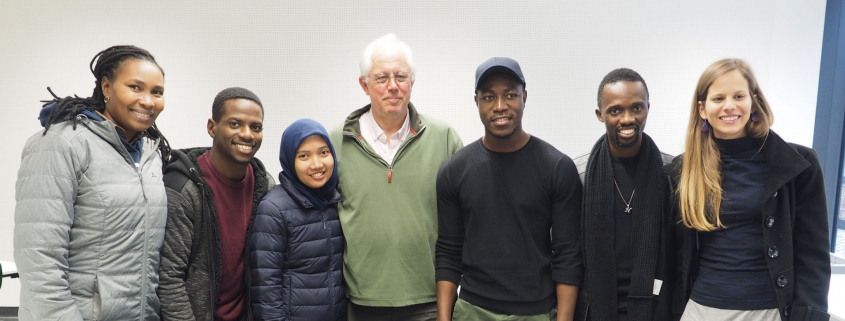
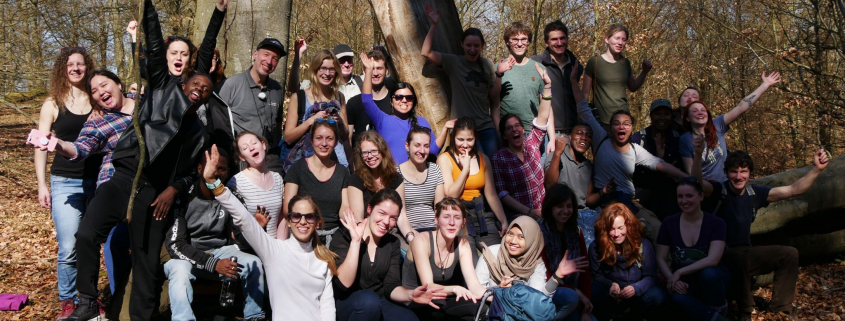
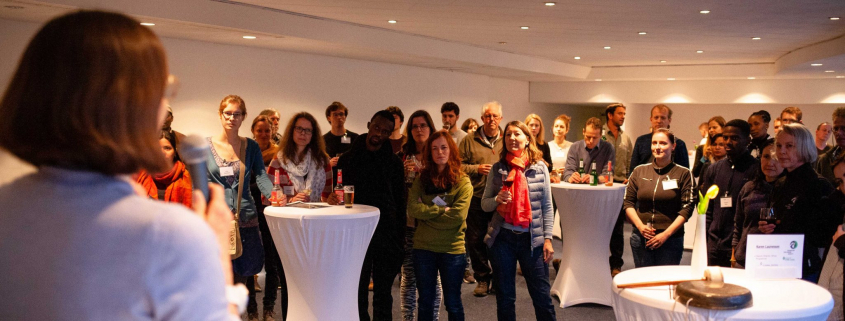 Jeldrik Schroer
Jeldrik Schroer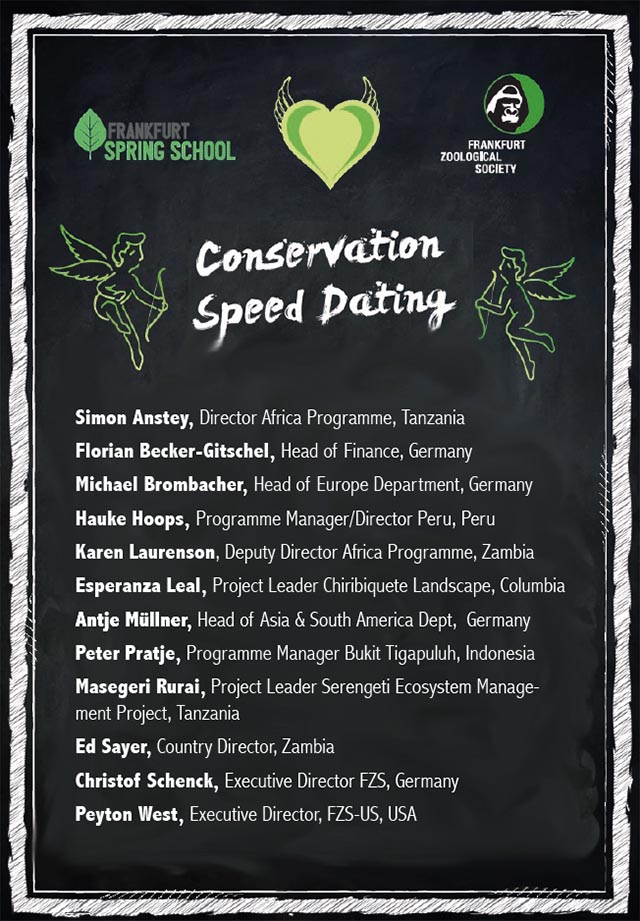
 For me it was a really good experience to learn from their [experts] experiences, as I will soon finish my masters and start looking for a job.”
For me it was a really good experience to learn from their [experts] experiences, as I will soon finish my masters and start looking for a job.” I found it very interesting to gain insights about their own careers: their personal career path was inspiring.”
I found it very interesting to gain insights about their own careers: their personal career path was inspiring.” It gave me insights of what characteristics you should have as a young conservationist – resilience, determination and to keep going. It was very encouraging to know that it was also hard for them when they started out their career.”
It gave me insights of what characteristics you should have as a young conservationist – resilience, determination and to keep going. It was very encouraging to know that it was also hard for them when they started out their career.” You don’t get this opportunity at university – to talk to staff and learn from their experiences. One advice I learned was to plan carefully how much you want to dedicate to conservation and where you want to see yourself in five years.”
You don’t get this opportunity at university – to talk to staff and learn from their experiences. One advice I learned was to plan carefully how much you want to dedicate to conservation and where you want to see yourself in five years.”